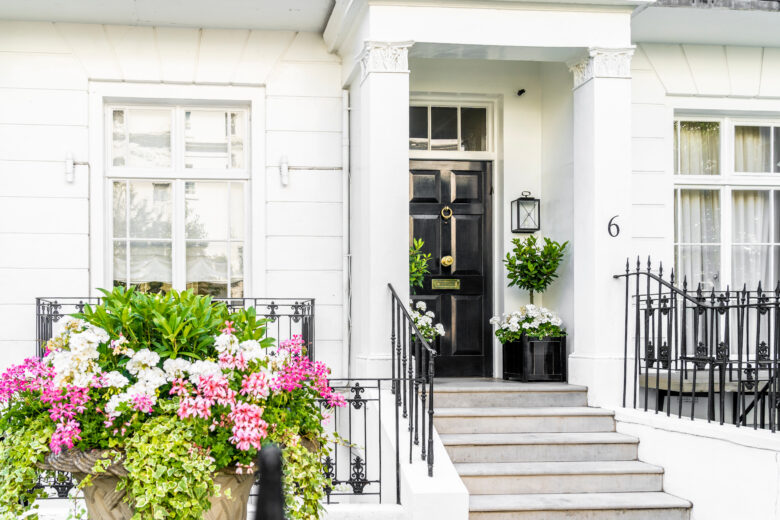
House Survey: Everything You Need to Know
When purchasing a property, conducting a house survey by a RICS chartered surveyor is a crucial step that can save you from potential pitfalls and costly repairs down the line. This comprehensive guide will walk you through the essentials of house surveys, helping you make an informed decision about your potential new home.
What is a House Survey?
A house survey is a detailed inspection of a property’s condition, carried out by a qualified professional, typically a RICS chartered surveyor. The survey aims to identify any issues with the property, from minor defects to major structural problems.
Types of House Surveys
Surveyors offer various types of surveys, each providing different levels of detail. Here are the levels typically available:
1. RICS Home Survey Level 1 (Condition Report)
- Basic overview of the property’s condition
- Suitable for newer homes in good condition
- Least expensive option
2. RICS Home Survey Level 2 (Homebuyer Report)
- More detailed than Level 1
- Includes advice on repairs and ongoing maintenance
- Suitable for conventional properties in reasonable condition
Here is an example of our Homebuyer Report: Click here
3. RICS Home Survey Level 3 (Building Survey)
- Most comprehensive survey
- In-depth analysis of the property’s structure and condition
- Suitable for older, larger, or unusually constructed properties
At Novello Chartered Surveyors, we offer standalone Homebuyer Reports and Building Surveys. However, our Private Client Surveying Service elevates the Building Survey Report to a new level, providing more than just the report itself. As your strategic personal surveyor, we deliver comprehensive care and advice tailored to your needs, who will work closely with you throughout the entire process. Each surveyor manages only 3-4 clients per week, ensuring they can dedicate the time and attention you deserve.
Click here to see an example of our report that you would receive
What Does a Surveyor Look For?
The extent to which a surveyor examines various aspects of the property depends on the level of the survey. Generally, the more detailed the survey, the more thorough the examination. However, here are some key areas they focus on:
Structural Integrity
- Foundation: Checking for cracks or subsidence.
- Walls: Inspecting for dampness, cracking, and structural issues.
- Roof: Assessing the condition of the roof, tiles/slates, and guttering.
Internal Condition
- Floors: Looking for signs of movement or damage.
- Windows and Doors: Checking for proper operation and insulation.
- Loft: Examining insulation and potential pest issues.
Utilities
- Plumbing: Assessing the condition of pipes and drainage.
- Electrics: Ensuring electrical systems meet safety standards.
- Heating: Checking the functionality and efficiency of heating systems.
Other Considerations
- Damp and Timber: Identifying signs of dampness and woodworm.
- Environmental Issues: Checking for asbestos, flood risks etc.
- Legal Matters: Noting any potential legal issues, such as boundary disputes.
Finding a RICS Chartered Surveyor
Choosing the right RICS chartered surveyor is crucial for an accurate and reliable house survey. To find a RICS chartered surveyor, you can:
1. Use the RICS website’s “Find a Surveyor” tool
2. Ask for recommendations from your estate agent or mortgage lender
3. Research local surveying firms with good reputations
What to Expect During the Survey Process
1. Booking the survey: Contact your chosen surveyor and schedule a convenient date.
2. The inspection: The surveyor will visit the property and conduct a thorough examination.
3. Report preparation: The surveyor will compile their findings into a detailed report.
4. Receiving the report: You’ll typically receive the report within a few days.
5. Follow-up: If needed, discuss any concerns or questions with your surveyor.
Seven Things a Surveyor May Ask You
You can read our full blog on the questions a surveyor may ask here, but here is a quick recap:
1. How old is the property?
2. Have you carried out any recent improvements?
3. Where are your services?
4. Do you have keys?
5. Do you have the necessary certificates?
6. Is there any history of insurance claims?
7. What is the parking situation?
Conclusion
A house survey is a critical step in the home-buying process. It provides valuable insights into the property’s condition and can save you from costly surprises. By understanding the different types of surveys, what they cover, and how to choose a reliable RICS chartered surveyor, you can make an informed decision and protect your investment. Remember, while the cost of a survey might seem high, it’s a small price to pay for peace of mind and financial security in your new home.
For more information and to book a survey with experienced professionals, get in touch

